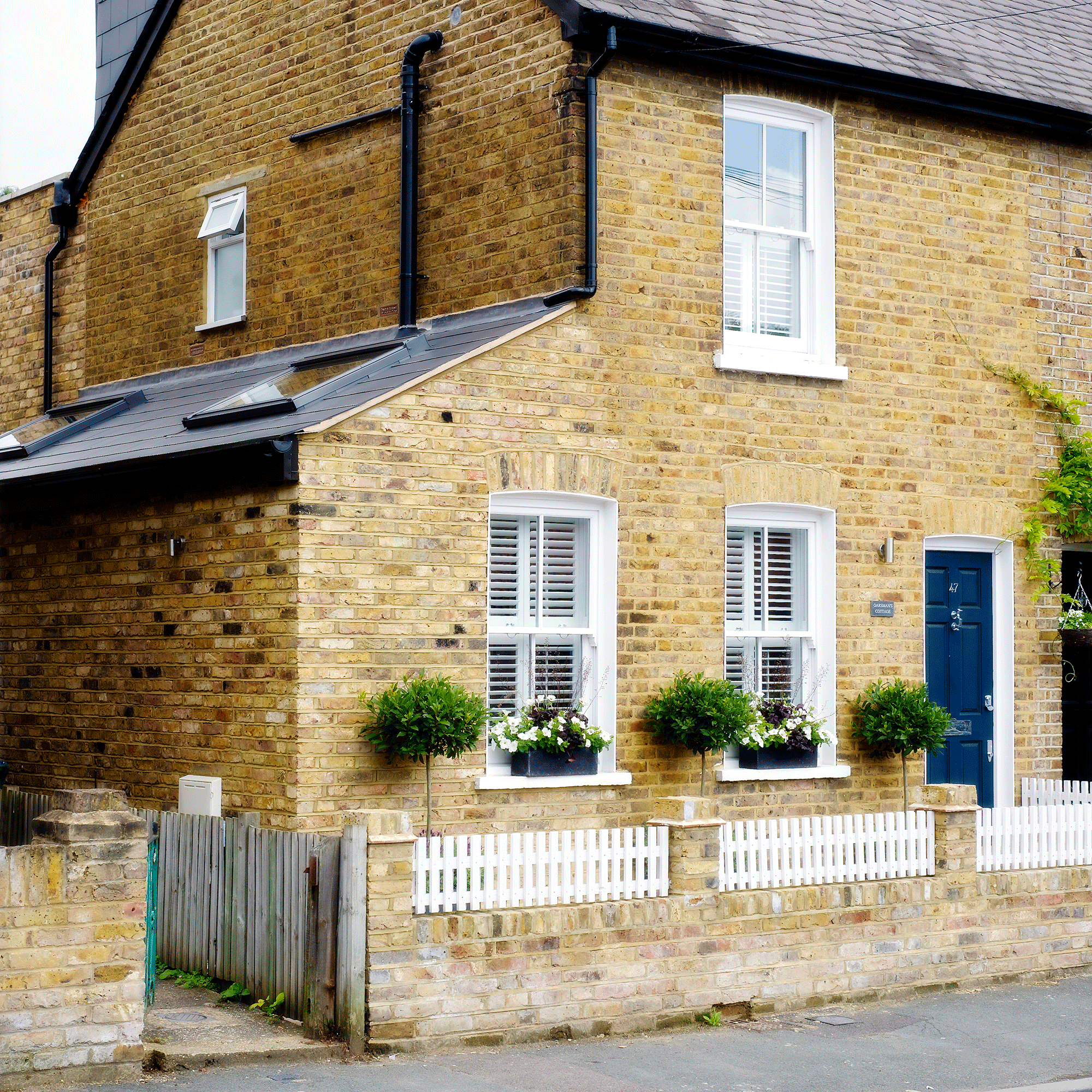What to do if you can’t pay your mortgage - expert advice on the best steps to take
Mortgage rates have risen rapidly in a matter of weeks – here’s what to do if you can’t pay your mortgage

Mortgage rate increases along with rising energy costs and food bills have piled the pressure on household finances. If you’re worried about what to do if you can’t pay your mortgage please don’t suffer in silence, ask for help.
Interest rates on new mortgage deals have been steadily rising since December as the Bank of England continues to push up the base rate to rein in rising inflation. But in a matter of weeks mortgage rates have suddenly shot up following a drop in the value of sterling against the dollar which led to forecasts that interest rates would rise even higher.
What to do if you can’t pay your mortgage
Don’t panic and follow our step-by-step guide:
1. Contact your mortgage lender
Do this as soon as you think you will struggle to pay your mortgage payment in full. Don’t wait until you’ve missed a payment.
Sue Anderson, from debt charity StepChange, says: 'One in seven of the new clients who contact us are mortgage holders, and for them, a potential sharp rise in mortgage rates will understandably be causing concern. Lenders have a regulatory responsibility to treat borrowers fairly so ask them for help.'

2. Work out what you can afford to pay
Working out what repayments you could afford allows you to better discuss your options with your lender. Your lender can help you do this using a budgeting calculator.
You may be able to extend your mortgage term to lower your monthly payment to an amount you can afford.
Get the Ideal Home Newsletter
Sign up to our newsletter for style and decor inspiration, house makeovers, project advice and more.
Or you could switch to an interest-only mortgage. This will reduce your monthly mortgage payment because you are no longer paying the debt, only interest. Both these options result in you paying back more interest over the long term.

3. Check if you’re covered by insurance
Mortgage payment protection insurance will pay your monthly repayments in circumstances such as not being able to work because of a serious injury or redundancy.
4. Do your own budgeting exercise
Carry out your own budgeting exercise at home by using the government’s free budget calculator.
‘Your mortgage is the biggest and most important outgoing you have because it keeps a roof over your head,’ says consumer expert Jane Hawkes, founder of ladyjaney.co.uk. ‘It’s important to streamline your finances as much as possible so you can prioritise this payment. Do a full account audit and categorise your outgoings as essential and extras to see where you can make cutbacks.’
What happens if I can’t pay my mortgage?
If you can’t afford any of the options suggested, your mortgage lender still has a duty to treat you fairly and to take on board your requests.
Payment holidays became well known during the pandemic when lenders allowed borrowers in financial difficulty to stop paying their mortgage. This arrangement is no longer available but may be considered on a case-by-case basis.
David Hollingworth of broker L&C Mortgages says: 'A payment holiday is a useful short-term option but it is typically only offered when the reason for financial difficulty will not last for long. If there are no clear signs your situation will improve, a payment break is unlikely to be recommended.’
Your lender may offer you a payment plan. This allows you to pay less each month for a fixed amount of time. This type of plan, along with a payment break, shows up as an arrangement flag on your credit file.
To clear arrears, your lender may let you add the missed payments to your mortgage debt. This is called capitalising your arrears. By doing this you’ll be increasing the size of your mortgage so your mortgage payments will go up.

Will banks let you skip mortgage payments?
Your lender will not let you skip mortgage payments unless you’ve prearranged a payment holiday. If you skip a mortgage payment it will show on your credit file as a missed payment for up to six years and damage your credit score.
Each lender has its own rules around how many mortgage payments you can miss before they repossess your home but it is not a quick process and is only done as a last resort.
What help can I get if I can’t pay my mortgage?
Speak to a debt charity such as StepChange, National Debtline or Citizens Advice to get free advice on what to do if you can’t pay your mortgage or you are worried you may be repossessed.
Homeowners may also be eligible for help through the Support for Mortgage Interest loan. To qualify for the loan you need to be in receipt of certain benefits. Scottish homeowners can also apply to the Home Owners’ Support Fund if they are facing repossession.
Households struggling to pay for rising bills can apply for help through the Household Support Fund provided by local authorities. This financial support is only available to households most in need to pay for essentials. Contact your local authority to find out how to apply.
Samantha Partington is a personal finance journalist specialising in mortgages and the property market.
Over the past nine years, Samantha has worked for the Daily Mail, trade website Mortgage Solutions and business title Property Week. She regularly writes for national money pages including Money Mail and Sun Money and supports prop tech firms with content writing.
-
 My go-to Ninja coffee machine is on sale for Easter weekend
My go-to Ninja coffee machine is on sale for Easter weekendIt makes coffee shop quality achievable at home
By Molly Cleary
-
 When to plant out annual flowering plants for vibrant, colourful garden borders – and give them the best start, according to experts
When to plant out annual flowering plants for vibrant, colourful garden borders – and give them the best start, according to expertsNot sure when to plant out annual flowering plants? We've got you covered...
By Kayleigh Dray
-
 I'm a kitchen decor editor and didn't like this tableware trend - until I saw H&M Home's designer-look plates
I'm a kitchen decor editor and didn't like this tableware trend - until I saw H&M Home's designer-look platesThey made it easy to justify a new crockery set
By Holly Cockburn
-
 You can claim back over £300 a year from HMRC if you work from home - here’s how to check if you’re eligible
You can claim back over £300 a year from HMRC if you work from home - here’s how to check if you’re eligibleWhen it comes to saving, every little helps
By Kezia Reynolds
-
 Experts have revealed the best day to renew your home insurance policy - you’ll want to do it sooner rather than later
Experts have revealed the best day to renew your home insurance policy - you’ll want to do it sooner rather than laterDon't leave this task at the bottom of your to do list
By Kezia Reynolds
-
 Is a variable rate mortgage ever a good idea? Experts weigh in
Is a variable rate mortgage ever a good idea? Experts weigh inOur money expert explains what a variable rate mortgage is, who they can be good for, and the pros and cons of this kind of mortgage
By Samantha Partington
-
 I’m a first-time buyer, what are my chances of getting a mortgage right now?
I’m a first-time buyer, what are my chances of getting a mortgage right now?And what you can do to increase your odds
By Rachel Wait
-
 Should you ever pay above the asking price for a home?
Should you ever pay above the asking price for a home?Our money expert explains whether you should ever pay over the asking price for a home, especially if house prices fall as predicted
By Samantha Partington
-
 Should I fix my mortgage and how long should I fix for?
Should I fix my mortgage and how long should I fix for?We speak to the experts to find out whether you should fix your mortgage and how long for as well as the impact further interest changes could have on your decision
By Samantha Partington
-
 We put your mortgage questions to two leading experts, here's what they said
We put your mortgage questions to two leading experts, here's what they saidAs mortgage panic continues, we've answered the most common questions - from when mortgage rates will come down, to when you actually have to pay stamp duty
By Samantha Partington
-
 'My mortgage is set to skyrocket - what should I do?' 5 potential solutions from a money expert
'My mortgage is set to skyrocket - what should I do?' 5 potential solutions from a money expertIf you're facing higher mortgage costs, our money expert explains various courses of action you could take to ease the pressure
By Samantha Partington